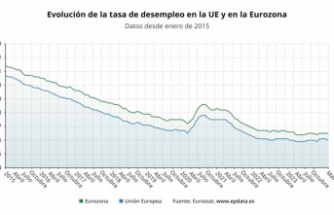TALLAHASSEE — In the days after five people were shot and killed in Fort Lauderdale's airport, some elected officials adopted a familiar routine.
5 Months Ago
4 Days Ago
6 Months Ago
As news spread that the suspected gunman told FBI agents in Alaska that he was hearing voices, Florida officials called for improvements to mental health care and tougher measures to keep guns away from people with severe psychological disorders.
The Jan. 6 mass shooting was just the latest to be followed by hand-wringing from politicians, particularly gun-rights supporters, who blamed shortcomings in the mental health system for the tragedy.
Despite years connecting mental illness and mass shootings, lawmakers in both parties have been reluctant to pass major legislation taking firearms out of the hands of people diagnosed with severe disorders.
Republican Gov. Rick Scott showed how quickly politicians can retreat after a call to action.
"One thing we have to think about is if someone is adjudicated mentally ill, it just doesn't make any sense that they should have access to a gun," he told reporters a week after the Fort Lauderdale shooting.
Scott and his spokespeople refused several requests by the Times/Herald to elaborate on what type of fix this would require. When pressed, he finally begged off further involvement.
"I support the Second Amendment, but I want to make sure that families in our state are safe," Scott said when asked for details late last month in Tampa. "Whatever the Legislature wants to do — I'm not part of the legislative branch — I'll review."
Scott, who often lobbies the Legislature on priorities like tax cuts, could weigh in on guns if he wants, but he's right that it's ultimately up to lawmakers to act. And there's much they can do.
Associated Press
Gov. Rick Scott said those pronounced mentally ill shouldn't have access to a gun. But when pressed for details as to how to limit their access, Scott said it was up to lawmakers. "Whatever the Legislature wants to do," Scott told reporters last month, "I'll review."
Experts say Florida could do more to keep guns away from people most at risk of committing violence by letting police temporarily confiscate weapons, closing loopholes in current laws and taking a narrower approach that doesn't target everyone with a mental illness.
Already, the state denies some firearm purchases on mental health grounds. Since January 2015, the Florida Department of Law Enforcement rejected background checks of more than 1,600 would-be gun buyers, 6.5 percent of 24,439 total denials during those two years but a tiny fraction of the 1.9 million processed during the same period.
That total does not include everyone whose purchase would have been stopped because of a mental health concern. State data shows just one reason for a background check rejection, which means some people whose gun purchases were denied because of a felony conviction could also have been rejected on mental health grounds.
A patchwork of state laws bans people from buying new guns because of mental illnesses that make them a danger to themselves or others. When a judge rules someone mentally incompetent or not guilty by reason of insanity, that person is flagged by FDLE if they try to buy a gun.
In reaction to the mass shooting at Sandy Hook Elementary School in Connecticut, lawmakers in 2013 added a new group to deny: People who chose to be committed to a mental health facility after having an involuntary examination under Florida's Baker Act and being declared a danger to themselves or others.
That's a high bar for denial, and the law did nothing to close two loopholes.
Because the state relies on background checks to prevent people buying guns, it has no way to stop purchases at gun shows or person-to-person sales. Only dealers licensed with the federal government are legally required to run checks, a frequent source of conflict between gun-rights and gun-control advocates.
Miami Gardens Democratic Rep. Barbara Watson, who sponsored the 2013 law, said the changes she pushed through then were a "great start," but need to be expanded.
"(The law) prevents them from purchasing new guns, but it does nothing to address what they may already have," she said.
Florida House of Representatives
Rep. Barbara Watson, D-Miami Gardens, said a 2013 law she sponsored doesn't go far enough. "The (new law) prevents them from purchasing guns, but it does nothing to address what they may already have."
Advocates at the intersection of mental health and gun violence prevention say mental illness is the wrong target for state policy anyway.
"The overwhelming majority of people with mental illnesses are not violent," said Ron Honberg, senior policy adviser for the National Alliance on Mental Illness.
A 2014 study by Jeff Swanson of the Duke University School of Medicine showed that taking guns away from mentally ill people would cut gun violence by 4 percent.
Instead, advocates say states should work to keep weapons away from people most likely to commit a violent crime. That includes people experiencing severe mental health and substance abuse crises.
But it extends to those convicted of less serious violent crimes like assault or domestic battery who are allowed to keep their guns because they are not found guilty of felonies.
Under existing Florida law, felons lose their right to own a firearm. However, a history of violence, not the severity of a previous crime, is the best indicator that someone might be violent in the future , said Josh Horwitz, executive director of the Coalition to Stop Gun Violence.
Among the changes that could make the biggest difference, he argues, are "gun violence restraining orders."
These orders, developed in Connecticut in the 1990s, allow police to hold someone's guns for two weeks if they believe that person poses a risk of violence, including to themselves.
A judge decides whether there is enough of a threat and can order a person's guns confiscated for up to a year.
The idea spread, most recently to Washington, where family members can also start the process of police taking guns if they think a relative could be dangerous.
"It's specifically designed for these situations we see in mass shootings, particularly where loved ones closest to shooter saw the warning signs," said Ari Freilich, an attorney with the Law Center to Prevent Gun Violence.
Having laws like this in Florida would not have stopped the Fort Lauderdale shooting because the suspected shooter, Esteban Santiago, was in Alaska when he told the FBI he was hearing voices.
But it may have prevented the mass shooting at Pulse nightclub last summer, Horwitz said. Omar Mateen, the shooter who killed 49 at the Orlando nightclub, had a history of domestic violence.
Associated Press
Laws that would have flagged those trying to buy guns who had prior records of domestic violence may have prevented last summer's Pulse nightclub shooting, said Josh Horwitz, executive director of the Coalition to Stop Gun Violence.
"Pulse is a great example," Horwitz said. "Why don't we look at the obvious and say someone who's beating up his wife or his girlfriend needs a time out?"
Gun-rights advocates say they're all for finding solutions to keep deadly weapons away from those with severe mental illness. But they say they want to better understand why some people diagnosed with mental illnesses aren't on the state's radar in the first place.
"I don't know the solution because I don't know the problem," said Eric Friday, attorney for Florida Carry Inc. "Why are people not ending up on the mental health registry? Or why are they not going to court and getting adjudicated if they have a mental health problem?"
Politicians are reluctant to back restrictive gun laws, which rarely get heard in a Capitol where groups like the National Rifle Association have tremendous sway.
More often, lawmakers say the state should focus on making treatment more accessible.
"It's hard to try to vote for any gun bill — I don't care what gun bill it is — until we start addressing the issue of mental health," said Sen. Rene Garcia, R-Hialeah.
Garcia, who chairs the Senate committee that oversees mental health, is among those pushing for more spending. Florida ranks near the bottom in the country in funding mental health treatment.
But that's exactly why some experts say relying on health care alone is not enough to prevent future gun deaths.
"Not all people with mental illness are dangerous," Horwitz said.
Times staff writer Alli Knothe and Miami Herald staff writer Amy Sherman contributed to this report. Contact Michael Auslen at mauslen@tampabay.com. Follow @MichaelAuslen.
Our editors found this article on this site using Google and regenerated it for our readers.













